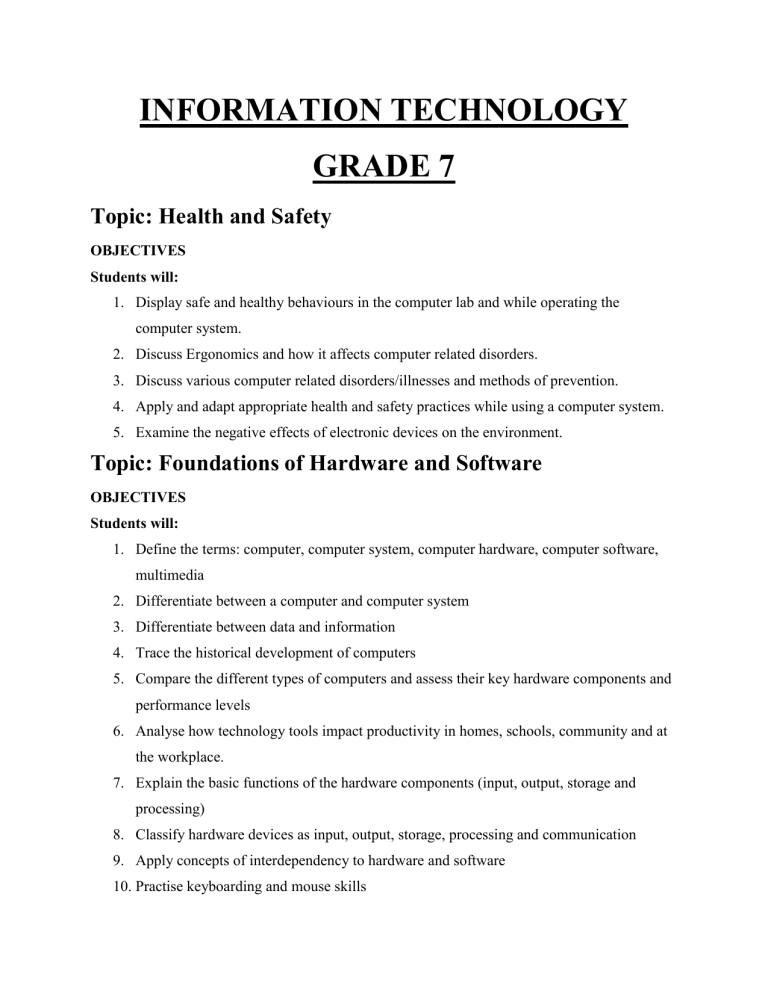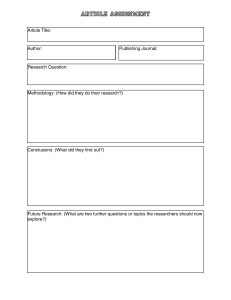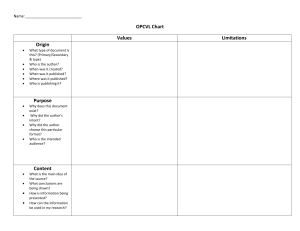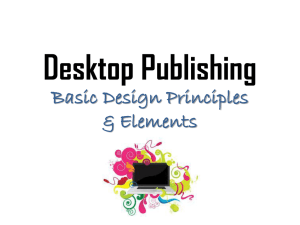
INFORMATION TECHNOLOGY GRADE 7 Topic: Health and Safety OBJECTIVES Students will: 1. Display safe and healthy behaviours in the computer lab and while operating the computer system. 2. Discuss Ergonomics and how it affects computer related disorders. 3. Discuss various computer related disorders/illnesses and methods of prevention. 4. Apply and adapt appropriate health and safety practices while using a computer system. 5. Examine the negative effects of electronic devices on the environment. Topic: Foundations of Hardware and Software OBJECTIVES Students will: 1. Define the terms: computer, computer system, computer hardware, computer software, multimedia 2. Differentiate between a computer and computer system 3. Differentiate between data and information 4. Trace the historical development of computers 5. Compare the different types of computers and assess their key hardware components and performance levels 6. Analyse how technology tools impact productivity in homes, schools, community and at the workplace. 7. Explain the basic functions of the hardware components (input, output, storage and processing) 8. Classify hardware devices as input, output, storage, processing and communication 9. Apply concepts of interdependency to hardware and software 10. Practise keyboarding and mouse skills 11. Classify software into the two main categories (system and Application) 12. Appreciate the uses of software 13. Investigate the different sections in the layout of a word processing software 14. Create documents using word processing software Topic: Data Communication, Networking and Internet OBJECTIVES Students will: 1. Create multimedia presentation using presentation software and apply animation and transition features to multimedia 2. Define the following terms as they relate to data communication: Communication, Data communication, Network, Modem, Internet, Web browser, Webpage, Website, search engine, URL, e-mail, Upload, Download 3. Describe a Network and highlight the services available in a networked environment 4. Explain the functions of the hardware required for a basic network (sending, receiving, communication device, etc.) 5. Identify the components of data communication 6. Describe various forms of electronic communication (email, SMS) 7. Differentiate among the types of network (Personal Area Network, Local Area Network, Metropolitan Area Network, Wide Area Network) 8. Discuss the advantages and disadvantages of using a Network such as the Internet 9. Differentiate between the Internet and the World Wide Web 10. Investigate basic internet resources – Email, Instant messaging and Social Networking 11. Explain the relationship between key terms (World Wide Web, website, web page, hyperlink, web browser, URL, search engine) Topic: Computer ethics and Research OBJECTIVES Students will: 1. Formulate ethical judgment when using the internet 2. Define terms associated with computer ethics and its practice (ethics, moral, computer ethics, intellectual property right, plagiarism, trademark, copyright, etc.) 3. Discuss moral and ethical practices in downloading and uploading online and offline information. 4. Investigate to determine credible online or offline sources based on specific criteria. 5. Apply the APA and MLA styles when making reference to online and offline sources 6. Demonstrate willingness to question information available on the Internet Topic: Computing Careers OBJECTIVES Students will: 1. Identify careers available in the field of ICT 2. Describe the job functions of different personnel in ICT careers 3. Discuss the importance of ICT careers in society 4. Create job descriptions and advertisements on Computing careers Topic: Desktop Publishing OBJECTIVES Students will: 1. Identify terms associated with Desktop Publishing 2. Distinguish among Word Processing, graphics designing and Desktop publishing 3. Discuss the uses and importance of Desktop Publishing software 4. Describe the steps involved in creating a Desktop Publishing document 5. Design and create digital artefacts using Desktop publishing


